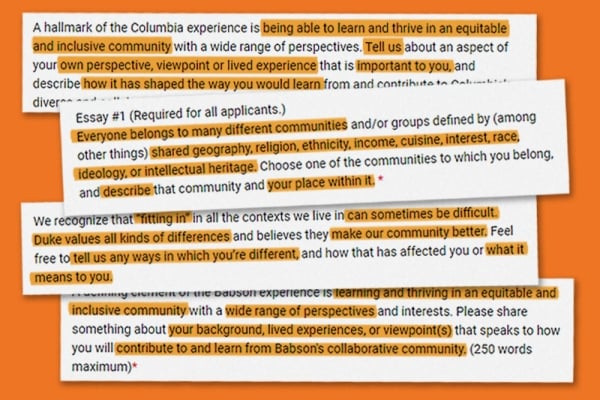The inclusion of the ‘essay carveout’ in English courses has been a long-standing tradition in schools and universities. This practice allows students to write essays to demonstrate their understanding and mastery of the subject matter covered in class. However, there has been a growing movement among educators and scholars to re-evaluate the use of these essays in the modern academic setting.
One of the main arguments against the continued use of essays as a primary assessment tool is that they do not accurately measure a student’s true understanding of a subject. In many cases, students are able to memorize information and regurgitate it in an essay without truly grasping the concepts behind it. This can lead to a false sense of achievement and a lack of critical thinking skills, which are crucial for success in today’s fast-paced and complex world.
Furthermore, the traditional format of essays may not be the most effective way to assess a student’s knowledge and skills. In a world where digital literacy and communication skills are becoming increasingly important, students need to develop new and creative ways to demonstrate their understanding. By focusing solely on written essays, educators may be limiting students’ ability to showcase their talents in other mediums such as digital presentations, videos, or multimedia projects.
Another issue with the essay carveout is the lack of diversity in assessment methods. By relying solely on essays, educators may be overlooking alternative ways for students to demonstrate their understanding and skills. This can be particularly problematic for students with different learning styles, backgrounds, or abilities who may excel in other forms of assessment but struggle with written essays.
In light of these concerns, many educators and scholars are calling for a re-evaluation of the essay carveout in English courses. One possible solution is to incorporate a more diverse range of assessment methods, including digital projects, presentations, group work, and performance-based assessments. By offering students a variety of ways to demonstrate their understanding, educators can better assess their skills and provide a more comprehensive evaluation of their learning.
Additionally, educators can use technology to their advantage by incorporating online platforms and tools that allow for more interactive and engaging assessments. By leveraging the power of digital resources, educators can create new opportunities for students to showcase their knowledge and skills in ways that are more relevant and meaningful in today’s digital age.
Overall, the essay carveout in English courses may no longer be the most effective or relevant assessment tool for students in the modern academic setting. By re-evaluating the use of essays and incorporating a more diverse range of assessment methods, educators can better assess students’ understanding and skills, and prepare them for success in an increasingly digital and interconnected world.


